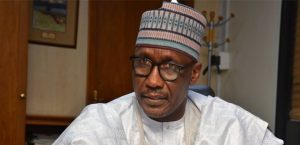 The Federal Government of Nigeria has announced its intention to launch a new audit to evaluate the N2.7tn fuel subsidy claim made by the Nigerian National Petroleum Company Limited (NNPCL).
The Federal Government of Nigeria has announced its intention to launch a new audit to evaluate the N2.7tn fuel subsidy claim made by the Nigerian National Petroleum Company Limited (NNPCL).
This decision comes after an initial audit conducted by KPMG, which resulted in the reduction of the subsidy claims from N6tn to N2.7tn.
To ensure a thorough and unbiased assessment, the government is considering two options: engaging an external audit firm or directing the Office of the Auditor General of the Federation to verify the claims presented by the corporation regarding the outstanding debt owed by the government to the oil firm.
The minutes of the Federal Account Allocation Committee meeting, held in March 2024, revealed the government’s plan for the fresh audit. These minutes, obtained by our correspondent, shed light on the government’s determination to address the subsidy debt issue.
On May 30, 2023, following President Bola Tinubu’s declaration that the “subsidy is gone,” Mele Kyari, the Group Chief Executive Officer of NNPCL, informed State House correspondents that the federal government still owed the company N2.8tn for petrol subsidy expenses. Kyari highlighted that NNPCL had covered the subsidy bills from its own cash flow but had not received any payment from the Federation.
During the FAAC meeting, Wale Edun, the Minister of Finance and Chairman of the committee, provided an update on the matter. Edun emphasized President Tinubu’s commitment to conducting a forensic audit of NNPC Limited and analyzing the results. The proposed audit would encompass the period from 2015 to 2021 and aim to verify the authenticity of NNPC’s claims to the Federation Account regarding the N2.7tn subsidy funds.
In terms of the audit process, Edun suggested considering the Office of the Auditor-General for the Federation (OAuGF) due to its expertise in auditing. However, Dapo Okubadejo, the Ogun State Commissioner for Finance, disagreed and proposed engaging an independent auditor to mitigate potential conflicts of interest.
The government’s decision to initiate a fresh audit demonstrates its determination to address the subsidy debt issue transparently and ensure accountability in the utilization of public funds.

